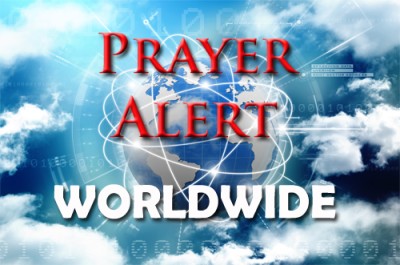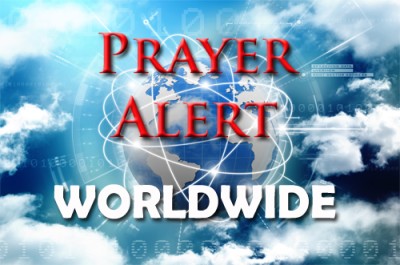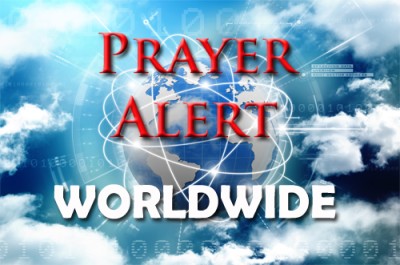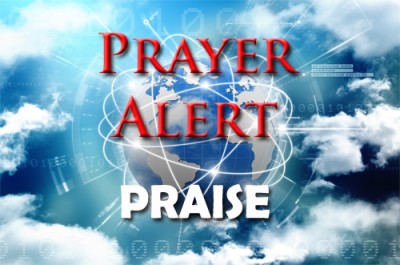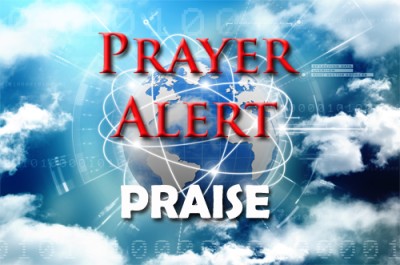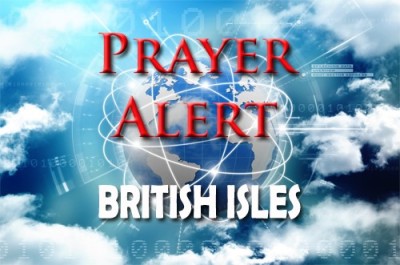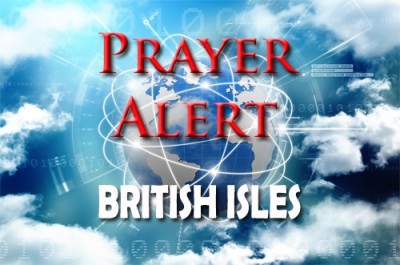World: food marooned in Ukraine
10 Mar 2022The prospect of Ukraine’s wheat harvests being marooned by war has already sent wheat prices to record highs. If the crops cannot leave the country, global food shortages are likely. Ukraine is one of the world’s great breadbaskets. It is the top producer of sunflower seeds, its black-earth fields yield large oilseed crops, they export 12% of the world’s wheat and 17% of its corn. However the war has done grave damage to Ukraine’s infrastructure. Russian missiles have ruined airports, roads still existing have militarised checkpoints, and few companies want to send trucks across land borders already choked with refugees. Previously Ukraine’s sea ports exported 200,000 tonnes of wheat a day. Now the best it is likely to attain through transloading operations at every one of its western border crossings - Romania, Slovakia, Poland and Hungary - is ‘under 20,000 tonnes a day, altogether’.
China is engaged in a massive nuclear weapons buildup that includes hundreds of new strategic missiles, and Chinese President Xi Jinping is preparing the military to retake Taiwan, USA’s most senior intelligence official told Congress on 8 March. Avril Haines, director of national intelligence, disclosed new information on threats from China and dangers posed by Russia, North Korea and Iran at the annual briefing on threats to US security around the globe. China’s military buildup includes the largest ever nuclear force expansion and arsenal diversification in its history, and there were 39 incursions Into Taiwan's airspace by fighter planes in one day. The Pentagon is warning that China is preparing for a military campaign, so it is sending new sales of advanced-grade military drones to Taiwan.
USA: Donald Trump’s possible criminal acts
10 Mar 2022The congressional committee investigating the attack on Capitol Hill said in a court filing, ‘Evidence and information available to the Committee establishes a good-faith belief that Mr Trump and others may have engaged in criminal and/or fraudulent acts. The select committee also has a good-faith basis for concluding that the President and members of his campaign engaged in criminal conspiracy to defraud the USA.’ If John Eastman is proven to have worked unethically for Mr Trump his legal licence may be suspended, and it increases political pressure on the Attorney General to charge Trump.
Introducing the Global Jesus Fast 2022 40day Prayer Guide
We invite you to join us in 40 days of prayer and fasting between March 7th and April 15th.
Wherever I go and with whomever I speak, there seems to be a burgeoning expectation concerning 2022. We discern this will be a time of trouble and upheaval, but also a pivotal time for international breakthroughs unto spiritual awakening, and a global harvest. I believe the days we are entering into demand a global response of an ardent pursuit of the Lord in prayer and fasting and a pressing forward in an all-out challenge to the principalities and powers that seek to assert their influence over the control centers of the earth.
Our theme is “Come to the Table, Behold the Lamb.” We are encouraging believers around the world to prayerfully read through the daily devotional provided by different global prayer leaders, engage in a Daniel/partial fast as the Lord leads you and consider taking communion each day. We have provided a You Tube Playlist of songs focused on ‘Beholding the Lamb’ to help combine your prayer with worship! Behold the Lamb Worship Songs Playlist
We also are asking you to consider praying for one strategic, unreached city each day during these 40 days to be reached with the gospel of Jesus Christ. We have provided some specific prayer points for these cities in the month of March and April, www.gopray.world
“May the Lamb who was slain receive the due reward of his suffering” – Moravians
“Worthy is the Lamb who was slain, to receive power and wealth and wisdom and might and honor and glory and blessing!” – Rev. 5:12
We would appreciate if you could please circulate this email to your networks, members and contacts.
Every blessing,
Jason Hubbard
Lou Engle
UK help for refugees
03 Mar 2022The Government has been facing growing calls to waive visa rules for all Ukrainians seeking sanctuary in the UK. On 2 March Boris Johnson said the UK could take in 200,000 or more Ukrainian refugees.The scheme allowing close relatives of Ukrainian people settled in the UK to come over will be widened to include adult parents, grandparents, children over 18, and siblings. UK firms will also be able to sponsor a Ukrainian entering the country.
Shrove Tuesday ball game returns for 822nd year
03 Mar 2022A Warwickshire town kicked off its ancient Shrove Tuesday ball game following a two-year break due to the coronavirus pandemic. The 822nd Atherstone Ball Game involved hundreds of people competing on the streets for ownership of a heavy, leather ball. Rob Bernard, chairman of the organising committee, said. ‘We are absolutely delighted that it is back on now.’ The winner is the person who has the ball at 17:00 GMT. This year’s winner said it had been easy to hold on to the ball at the end - as he hid it under his T-shirt. ‘It had popped and then I quickly took it and put it under my T-shirt and me and my friend were just in a deep hug,’ he said. People were ‘extremely excited’ about the return of the game, which has international attention.
Sanctioned elsewhere but not by the UK
03 Mar 2022There are several individuals being sanctioned by other nations but not by the UK. Oleg Deripaska was sanctioned by America for money laundering, ordering the murder of a business rival, illegally wiretapping government officials, extortion, racketeering and bribing government officials. He owns 45% of an aluminium company listed on the London Stock Exchange, and former Conservative energy minister Lord Barker is its executive chairman. The Russian state-owned VTB bank was suspended from the Stock Exchange but Andrey Kostin, president of the bank, is not sanctioned. Victor Zolotov, also on the EU's list but not UK's, leads Russia's national guard. His family is one of the richest in Russia in the real estate sector, with property portfolios in the UK. Pro-Kremlin billionaire Alisher Usmanov founded Russian-based USM which owns major iron, steel and copper suppliers and a telecommunications company, and has commercial ties to Everton Football Club (which has suspended its sponsorship contracts with USM).
‘Chaotic’ Kickstart scheme for youth fails
03 Mar 2022The Public Accounts Committee supported the Department for Work and Pensions as it tried to help young people into work at what was expected to be a downturn in employment opportunities. But the £1.9 billion ‘emergency intervention’ Kickstart scheme has supported far fewer young people than predicted. Early delivery was chaotic and DWP ‘neglected to put in place basic management information that would be expected for a multi-billion-pound grant programme’. Also, despite more favourable than predicted economic conditions, many young people who joined Universal Credit when the pandemic started have remained on the benefit. DWP doesn’t know why these people are not in Kickstart jobs.
